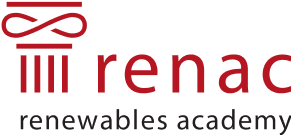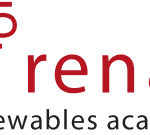This website uses cookies so that we can provide you with the best user experience possible. Cookie information is stored in your browser and performs functions such as recognising you when you return to our website and helping our team to understand which sections of the website you find most interesting and useful.
Customer-specific programmes
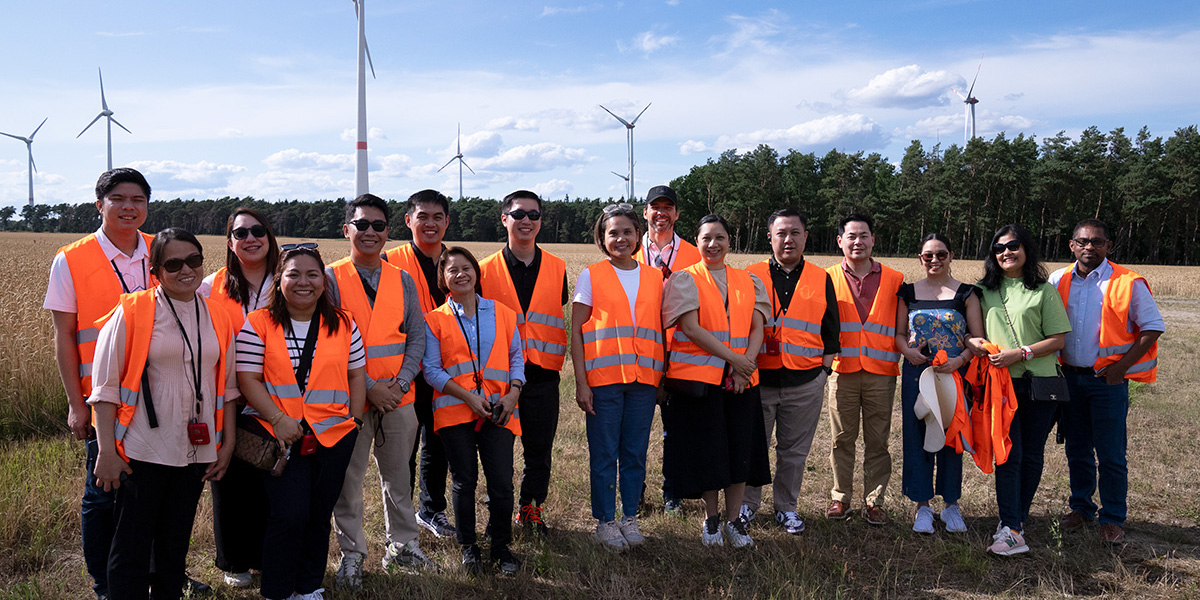
Job requirements in the green energy markets are complex and manifold. To ensure a company or organisation success, employees need extensive skills and up-to-date know-how.
RENAC customer-specific programmes offer the best way to meet participants’ training objectives:
- Analysis of participants’ capacity needs
- Selection of training contents and methods according to prior knowledge and needs
- The most suitable trainers
- Development of comprehensive materials with the highest quality standards
- Implementation of the training
Additionally, the training can be adjusted in duration and depth, organised for groups of various sizes and adapted to cover various technologies. Clients can determine when and where the training takes places.
Filter and search
Type
Name
Duration
Study time
Info
- concept of sector coupling, emission reduction, heating & cooling sector, industrial applications, low-emission basis
hours
Content:
• Introduction to sector coupling
• Direct electrification in the heating and cooling sector
• Direct electrification in the transport sector
• Indirect use of electricity
• Regulatory framework
Learning objectives:
After completing this course, participants will be able to:
- Explain the purpose of the concept of sector coupling as well as opportunities and challenges associated with the concept, and
- Compare the status quo of available technologies for sector coupling in the heating/cooling sector and in the transport sector, as well as generally expected future developments regarding technology options and costs.
Target group:
This course suits those who
• Want to gain an overview what Power to X means for different sectors and how these sectors developed
• Would like to develop grid integration strategies for renewable energy and consider cost trends of power to X
- EPC, land lease contracts, O&M contracts, PPA, supply agreements
hours
Content:
• Introduction to project contracts
• Contracts in international projects
• Contracts in renewable energy projects
• Potential risks for investors
• Requirements of financing institutions
Learning objectives:
After completion of this course, participants will be able to:
• Distinguish different types of project contracts and the corresponding contract partners
• Draft and prepare different types of contracts required in renewable energy project finance
• Apply these project contracts in order to achieve a bankable project finance structure and to minimize the project risks
• Analyse the requirements of international financing institutions on project contracts
Target group:
This training suits professionals from the energy sector, policy makers (lawyers, economists, scientists, political scientists, engineers), project developers and alike who…
• need to manage the various contracts in a renewable energy project under project finance schemes,
• want to understand the contractual commitments in renewable energy projects and
• seek to set up a Special Purpose Vehicle and develop a RE project.
- economics, feasibility studies, main contracts, project partners, risk assessment
Content:
• Energy demand and power balance
• PV systems capacity
• Potential of solar resource
• Site requirement
• Environmental and social impact assessment
• Planning of main components (no detailed planning or design)
• Grid access (no grid study or details about grid access)
• Feasibility study on technology, economics, operations and risk assessment
Learning objectives:
After the seminar participants will be able to…
• Understand the main remits of project development and planning and relevant content of feasibility studies
• Identify the requirements for a feasible PV project
• Take go / no-go decisions and sort out unfeasible projects
• Prepare a feasibility study
Target group:
This training suits those who…
• Want to develop PV projects
• Plan PV projects
• Evaluate the feasibility of PV projects
- behaviour of protection, calculation methods, monitoring, planning, testing
hours
Content:
- Electrical behaviour of protection devices and photovoltaic generation systems
- Grid calculation methods
- Protection system planning principles
- Protection testing
- Compliance monitoring
Learning objectives:
After completing this course, participants will be able to:
- explain the general purpose of protection systems in distribution grids,
- name the basic principles of protection systems,
- identify the different impacts of renewables integration that impact grid protection scheme design,
- identify the most important differences in grid protection systems between low and medium voltage grids,
- explain the different kinds of protection systems that are in use today,
- describe the different calculation methods used in protection system planning and
- derive key success factors for effective protection planning principles when taking into account distributed PV power generation.
Target group:
This course suits those who
- Have an advanced knowledge of electrical engineering
- Are involved in the distribution grid operation and
- Want to understand how protection systems have to change if large amount of distributed generation as e.g. photovoltaic is connected to the grid
- business models, business plans, economics, financial aspects, starting a business
Content:
• PV system components and design (basics)
• PV value chain and main actors
• Project development – basics and scope of work
• EPC – basics and scope of work
• Operation and maintenance – basics and scope of work
• Economics of PV projects
• Financing of PV projects
• Suitable business models in target country
• Development of business plans
Learning objectives:
After the seminar participants will be able to…
• apply technical, legal and financial aspects of grid connected utility scale PV projects
• identify key aspects of the project development chain, explain important milestones of the PV project life-cycle, and analyse operational PV system data
• understand how to start business in PV sector
• set up their own business plan in the local PV sector in order to become an entrepreneur.
Target group:
• Consultants
• Public and private companies
• Start-up’s
• Entrepreneurs
• Managers
- commissioning, components, configurations, economics, installation, operation and maintenance, sizing
hours
Content:
• Applications
• System configurations
• System components
• System design and sizing
• Installation, commissioning, operation & maintenance
• Economics of off-grid PV systems
Learning objectives:
After completion of this course, participants will be able to:
- Distinguish between different off-grid photovoltaic (PV) system applications and configurations
- Name and explain the required components for off-grid PV systems
- Manage the design, sizing, installation and commissioning of an off-grid PV system
- Analyse the economic viability of off-grid PV systems
Target group:
This training suits those who are (planning to be) involved in off-grid PV systems, engineers, installers
- case studies, components, dynamic behavior, economics, sizing
hours
Content:
• System components
• System sizing
• Dynamic system behaviour
• Economic evaluation
• Case studies
Learning objectives:
After completion of this course, participants will be able to:
- Estimate the potential and suitable locations for PV-diesel hybrid systems
- Decide which components are to be used for which purpose
- Explain the basic parameters for system sizing and dynamic system behaviour
- Evaluate PV-diesel hybrid systems from an economic perspective
Target group:
This training suits those who are interested in renewable energy technologies
- bank portfolio financings, FinCos, infrastructure investment funds, rationale for project bundling, YieldCos
hours
Content:
- The need for aggregating projects into larger investment units
- Yield Companies (“YieldCos”)
- Infrastructure investment funds (“IIFs”)
- Financing Companies (“FinCos”)
- Bank portfolio financings
Learning objectives:
After completion of this course, participants will be able to:
- Give reasons why investors and banks have an interest in bundling RE projects into investment vehicles
- Classify investment vehicles according to the four types presented (YieldCo, IIF, FinCo and bank portfolio financing) and explain their advantages and disadvantages
- Explain the areas of application of the different investment vehicles
- Propose strategies based on examples that can be implemented operationally using the different types of investment vehicles
Target group:
This training suits to professionals in the financial sector involved or interested in RE project finance who
- Are interested in international finance options of large-scale RE projects and RE project portfolios
- Want to explore new financing options for larger RE project portfolios
- work in or will develop new investment funds and investment vehicles that want to focus more on green energy projects
Content:
- Navigation and overview
- Project and technology input parameters
- Financial input parameters
- Debt and loan structuring
- Output
Learning objectives:
After completion of this course, participants will be able to:
- Use the financial modelling tool “RE Project Evaluator”
- Collect required data which are required as input parameters for the modelling tool
- Develop a debt and loan structure for a specific renewable energy project
- Analyse the results and output parameters of the modelling tool
Target group:
This training suits those who
- want to evaluate RE projects using the financial modelling tool “RE Project Evaluator” (MS Excel)
hours
Content:
- Basic financial principles and concepts
- Financial performance indicators
- RE Projects risks and uncertainties
Learning objectives:
After completion of this course, participants will be able to:
- Illustrate basic financial principles including the time value of money and the determination of cost of capital,
- Increase understanding of capital budgeting tools to assess renewable energy investment attractiveness,
- Perform calculations of important economic parameters to assess the viability of a renewable energy project, and
- Demonstrate concepts of risk and uncertainty as well as risk assessment instruments.
Target group:
This training suits professionals who
- Intend to learn about basic financial principles and capital budgeting tools to assess renewable energy investments
- Intend to introduce and enhance the financing of large-scale green energy projects in their financial institution (e.g. bank managers and staff);
- Intend to promote green energy project finance in the financial sector (e.g. policy and decision makers, public organisations)
- Aim at promoting investments in green energy projects among potential investors in the industrial or public sectors (e.g. project developers, representatives from associations, consultancies)
- Are potential investors for green energy projects (e.g. Industrial or infrastructure companies, large manufacturers, public institutions, project developers)
- bankability assessment, business planning, case studies, financial engineering, SPV
hours
Content:
• Available financing options
• SPV-contract negotiation
• Business planning
• Bankability assessment
• Financial engineering
• Examples: Wind farm project in Germany, PV project in France, Biogas project in Romania
Learning objectives:
After completion of this course, participants will be able to:
• Know the different financing options of RE projects in principle and the project finance option in more detail
• Perform a risk assessment for renewable energy projects
• Understand a bank‘s view of the risks related to PV, wind, and biogas plants
• Collect the data required for a bankability assessment of a renewable energy project
Target group:
This training suits those who
• Are or will be responsible for securing the finance of a RE project
• Provide debt financing for RE projects
• Want to know more about risks in RE projects and RE due diligence
Professionals from the energy sector, policy makers (lawyers, economists, scientists, political scientists, engineers), project developers
- collector configurations, commissioning, fault-finding, forced circulation, installation, residential-scale, store sizing, thermosiphon
Content:
• Introduction to solar thermal technology and applications: The energy debate focuses mainly on electrical power generation, although 50% of global energy demand is heat. Solar thermal, already very widely used, could make a huge contribution to our future clean energy mix.
• Analysis of solar resource and site selection
• Functionality of solar thermal collectors, storage tanks and other system components
• Solar thermal system types (thermosiphon and forced circulation)
• System configurations (open/closed, direct/indirect)
• Basic system design (collector and store sizing) and system simulation using T*Sol
• Sizing of main system components (piping, pump, expansion vessel, pressure relief valve, heat exchanger).
• Practical installation, commissioning, operation and maintenance aspects; common faults and how to identify and remedy these
• Controller operation
• Project management and system economics
Learning objectives:
After the seminar participants will be able to:
• Explain how solar thermal technology has the potential to meet many of our energy demands
• Describe different solar thermal components and system types, and their pros and consSelect the most appropriate system type and components depending on the hot water demand and application
• Draw a system schematic with all components
• Perform basic system design calculations and system simulation
• Perform an economic analysis
• Perform system commissioning and fault-finding
• Describe critical points in the planning, installation and operation of solar thermal systems
Target group:
This training suits those who:
• are involved in residential solar water heating projects who want to gain experience in designing and installing solar thermal systems
• Wish to offer their customers a “one stop shop” for residential-scale solar thermal systems
Content:
• Introduction to sector coupling
• Direct electrification in the heating and cooling sector
• Direct electrification in the transport sector
• Indirect use of electricity
• Regulatory framework
Learning objectives:
After completing this course, participants will be able to:
- Explain the purpose of the concept of sector coupling as well as opportunities and challenges associated with the concept, and
- Compare the status quo of available technologies for sector coupling in the heating/cooling sector and in the transport sector, as well as generally expected future developments regarding technology options and costs.
Target group:
This course suits those who
• Want to gain an overview what Power to X means for different sectors and how these sectors developed
• Would like to develop grid integration strategies for renewable energy and consider cost trends of power to X
Content:
• Introduction to project contracts
• Contracts in international projects
• Contracts in renewable energy projects
• Potential risks for investors
• Requirements of financing institutions
Learning objectives:
After completion of this course, participants will be able to:
• Distinguish different types of project contracts and the corresponding contract partners
• Draft and prepare different types of contracts required in renewable energy project finance
• Apply these project contracts in order to achieve a bankable project finance structure and to minimize the project risks
• Analyse the requirements of international financing institutions on project contracts
Target group:
This training suits professionals from the energy sector, policy makers (lawyers, economists, scientists, political scientists, engineers), project developers and alike who…
• need to manage the various contracts in a renewable energy project under project finance schemes,
• want to understand the contractual commitments in renewable energy projects and
• seek to set up a Special Purpose Vehicle and develop a RE project.
Content:
• Energy demand and power balance
• PV systems capacity
• Potential of solar resource
• Site requirement
• Environmental and social impact assessment
• Planning of main components (no detailed planning or design)
• Grid access (no grid study or details about grid access)
• Feasibility study on technology, economics, operations and risk assessment
Learning objectives:
After the seminar participants will be able to…
• Understand the main remits of project development and planning and relevant content of feasibility studies
• Identify the requirements for a feasible PV project
• Take go / no-go decisions and sort out unfeasible projects
• Prepare a feasibility study
Target group:
This training suits those who…
• Want to develop PV projects
• Plan PV projects
• Evaluate the feasibility of PV projects
Content:
- Electrical behaviour of protection devices and photovoltaic generation systems
- Grid calculation methods
- Protection system planning principles
- Protection testing
- Compliance monitoring
Learning objectives:
After completing this course, participants will be able to:
- explain the general purpose of protection systems in distribution grids,
- name the basic principles of protection systems,
- identify the different impacts of renewables integration that impact grid protection scheme design,
- identify the most important differences in grid protection systems between low and medium voltage grids,
- explain the different kinds of protection systems that are in use today,
- describe the different calculation methods used in protection system planning and
- derive key success factors for effective protection planning principles when taking into account distributed PV power generation.
Target group:
This course suits those who
- Have an advanced knowledge of electrical engineering
- Are involved in the distribution grid operation and
- Want to understand how protection systems have to change if large amount of distributed generation as e.g. photovoltaic is connected to the grid
Content:
• PV system components and design (basics)
• PV value chain and main actors
• Project development – basics and scope of work
• EPC – basics and scope of work
• Operation and maintenance – basics and scope of work
• Economics of PV projects
• Financing of PV projects
• Suitable business models in target country
• Development of business plans
Learning objectives:
After the seminar participants will be able to…
• apply technical, legal and financial aspects of grid connected utility scale PV projects
• identify key aspects of the project development chain, explain important milestones of the PV project life-cycle, and analyse operational PV system data
• understand how to start business in PV sector
• set up their own business plan in the local PV sector in order to become an entrepreneur.
Target group:
• Consultants
• Public and private companies
• Start-up’s
• Entrepreneurs
• Managers
Content:
• Applications
• System configurations
• System components
• System design and sizing
• Installation, commissioning, operation & maintenance
• Economics of off-grid PV systems
Learning objectives:
After completion of this course, participants will be able to:
- Distinguish between different off-grid photovoltaic (PV) system applications and configurations
- Name and explain the required components for off-grid PV systems
- Manage the design, sizing, installation and commissioning of an off-grid PV system
- Analyse the economic viability of off-grid PV systems
Target group:
This training suits those who are (planning to be) involved in off-grid PV systems, engineers, installers
Content:
• System components
• System sizing
• Dynamic system behaviour
• Economic evaluation
• Case studies
Learning objectives:
After completion of this course, participants will be able to:
- Estimate the potential and suitable locations for PV-diesel hybrid systems
- Decide which components are to be used for which purpose
- Explain the basic parameters for system sizing and dynamic system behaviour
- Evaluate PV-diesel hybrid systems from an economic perspective
Target group:
This training suits those who are interested in renewable energy technologies
Content:
- The need for aggregating projects into larger investment units
- Yield Companies (“YieldCos”)
- Infrastructure investment funds (“IIFs”)
- Financing Companies (“FinCos”)
- Bank portfolio financings
Learning objectives:
After completion of this course, participants will be able to:
- Give reasons why investors and banks have an interest in bundling RE projects into investment vehicles
- Classify investment vehicles according to the four types presented (YieldCo, IIF, FinCo and bank portfolio financing) and explain their advantages and disadvantages
- Explain the areas of application of the different investment vehicles
- Propose strategies based on examples that can be implemented operationally using the different types of investment vehicles
Target group:
This training suits to professionals in the financial sector involved or interested in RE project finance who
- Are interested in international finance options of large-scale RE projects and RE project portfolios
- Want to explore new financing options for larger RE project portfolios
- work in or will develop new investment funds and investment vehicles that want to focus more on green energy projects
Content:
- Navigation and overview
- Project and technology input parameters
- Financial input parameters
- Debt and loan structuring
- Output
Learning objectives:
After completion of this course, participants will be able to:
- Use the financial modelling tool “RE Project Evaluator”
- Collect required data which are required as input parameters for the modelling tool
- Develop a debt and loan structure for a specific renewable energy project
- Analyse the results and output parameters of the modelling tool
Target group:
This training suits those who
- want to evaluate RE projects using the financial modelling tool “RE Project Evaluator” (MS Excel)
Content:
- Basic financial principles and concepts
- Financial performance indicators
- RE Projects risks and uncertainties
Learning objectives:
After completion of this course, participants will be able to:
- Illustrate basic financial principles including the time value of money and the determination of cost of capital,
- Increase understanding of capital budgeting tools to assess renewable energy investment attractiveness,
- Perform calculations of important economic parameters to assess the viability of a renewable energy project, and
- Demonstrate concepts of risk and uncertainty as well as risk assessment instruments.
Target group:
This training suits professionals who
- Intend to learn about basic financial principles and capital budgeting tools to assess renewable energy investments
- Intend to introduce and enhance the financing of large-scale green energy projects in their financial institution (e.g. bank managers and staff);
- Intend to promote green energy project finance in the financial sector (e.g. policy and decision makers, public organisations)
- Aim at promoting investments in green energy projects among potential investors in the industrial or public sectors (e.g. project developers, representatives from associations, consultancies)
- Are potential investors for green energy projects (e.g. Industrial or infrastructure companies, large manufacturers, public institutions, project developers)
Content:
• Available financing options
• SPV-contract negotiation
• Business planning
• Bankability assessment
• Financial engineering
• Examples: Wind farm project in Germany, PV project in France, Biogas project in Romania
Learning objectives:
After completion of this course, participants will be able to:
• Know the different financing options of RE projects in principle and the project finance option in more detail
• Perform a risk assessment for renewable energy projects
• Understand a bank‘s view of the risks related to PV, wind, and biogas plants
• Collect the data required for a bankability assessment of a renewable energy project
Target group:
This training suits those who
• Are or will be responsible for securing the finance of a RE project
• Provide debt financing for RE projects
• Want to know more about risks in RE projects and RE due diligence
Professionals from the energy sector, policy makers (lawyers, economists, scientists, political scientists, engineers), project developers
Content:
• Introduction to solar thermal technology and applications: The energy debate focuses mainly on electrical power generation, although 50% of global energy demand is heat. Solar thermal, already very widely used, could make a huge contribution to our future clean energy mix.
• Analysis of solar resource and site selection
• Functionality of solar thermal collectors, storage tanks and other system components
• Solar thermal system types (thermosiphon and forced circulation)
• System configurations (open/closed, direct/indirect)
• Basic system design (collector and store sizing) and system simulation using T*Sol
• Sizing of main system components (piping, pump, expansion vessel, pressure relief valve, heat exchanger).
• Practical installation, commissioning, operation and maintenance aspects; common faults and how to identify and remedy these
• Controller operation
• Project management and system economics
Learning objectives:
After the seminar participants will be able to:
• Explain how solar thermal technology has the potential to meet many of our energy demands
• Describe different solar thermal components and system types, and their pros and consSelect the most appropriate system type and components depending on the hot water demand and application
• Draw a system schematic with all components
• Perform basic system design calculations and system simulation
• Perform an economic analysis
• Perform system commissioning and fault-finding
• Describe critical points in the planning, installation and operation of solar thermal systems
Target group:
This training suits those who:
• are involved in residential solar water heating projects who want to gain experience in designing and installing solar thermal systems
• Wish to offer their customers a “one stop shop” for residential-scale solar thermal systems
Target Groups
Public sector officials for legal frameworks, regulation and implementation:

- Ministries
- Regulators
- Local administrations
Multipliers and development organisations:

- Development corporations
- Energy agencies
- International financing institutions
- NGOs
Private sector:

- Project developers
- System integrators
- Engineers and technicians
- Investors
- Financing institutions
- Grid operators
Capacity building and dissemination sector:

- Public and private training institutions
- Vocational training institutions
- Universities
Value Chain
We design and implement customer-specific programmes and services along the value chain in a holistic concept.
Our approach to Renewable Energy (RE) and Energy Efficiency (EE) is manifold: technology related knowledge is the basis and then each RENAC training and service focus on technical, economic, legal or project related aspects according to the target group. RENAC is also very active in international business matchmaking and market development services.
In our capacity building services we supply a variety of programmes to train trainers, to build training centres and to establish quality assurance processes.
Our Training Concept
Customer-Specific Programmes – what does it mean?
We offer customer-specific programmes according to client needs and participant job requirements in all green energy sectors. Based on an analysis of requested knowledge or specific job tasks and the level of existing knowledge, we develop a training concept proposal.
The concept includes recommendations for online or in-person trainings, or both. We develop the training concept taking the given resources on budget and learning time into account. After feedback from the client, we fine-tune the concept for approval.
Depending on the needs of our clients, we offer different levels of trainings (basic, intermediate, and advanced).
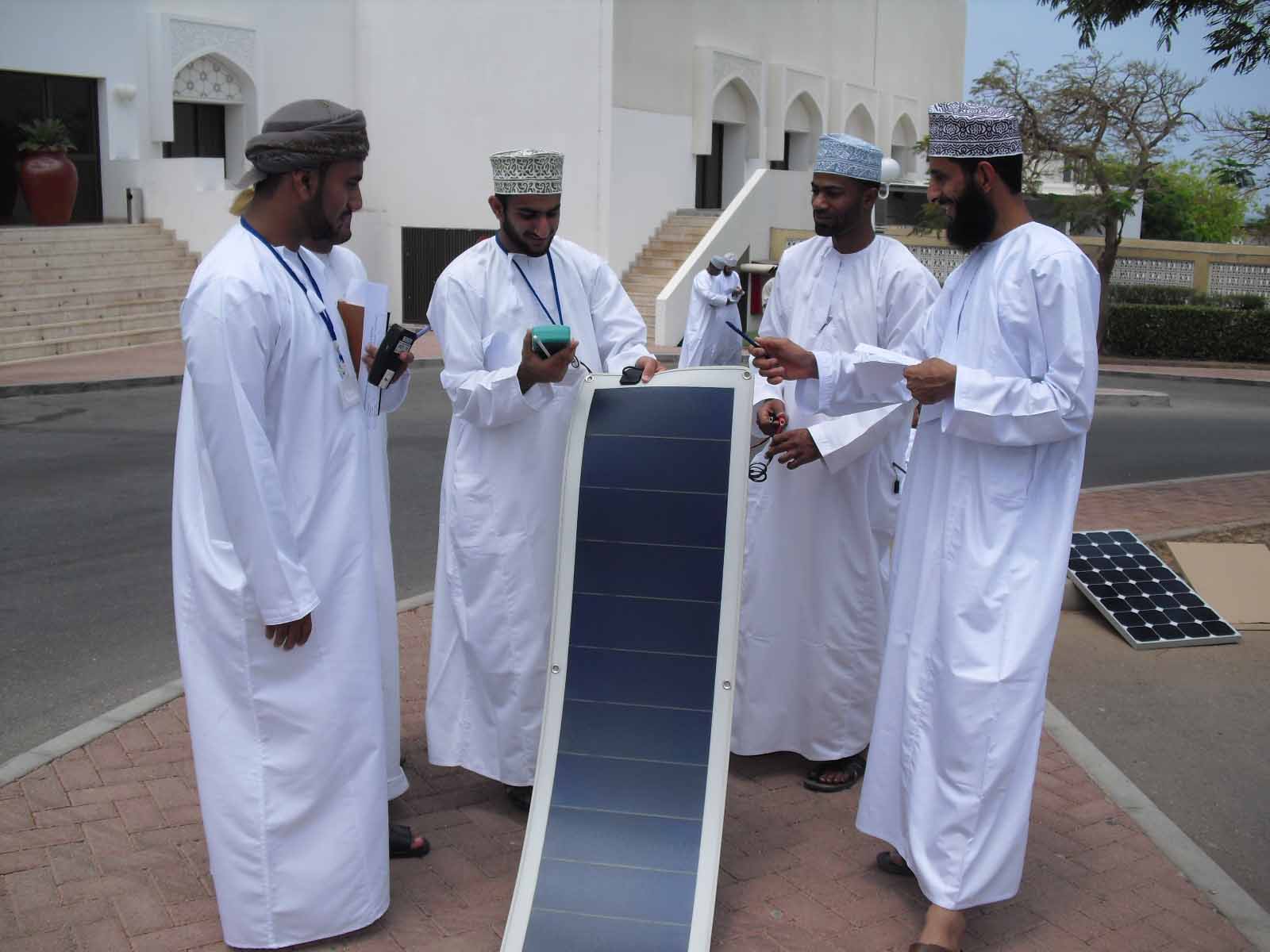
Service Catalogue
Find detailed information about the programme that best aligns with your needs and preferences.
Are you interested in a Customer-specific programmes?
Kindly fill out this questionnaire and attach it to the form on the right:
© 2024 | Renewables Academy (RENAC) AG
